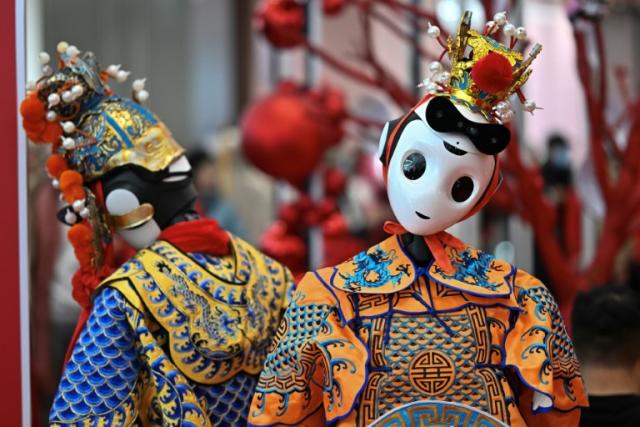News Flash
News Flash

BEIJING, Feb 1, 2025 (BSS/AFP) - A humanoid robot gyrates to pulsing music at
a shopping mall in Beijing, part of an exhibition harnessing artificial
intelligence to enhance the flavour of China's biggest annual festival.
The country is celebrating the eight-day Lunar New Year holiday that
typically sees people return home to eat, drink and make merry with family
and friends.
From dragon dances to incense offerings, the festival is also a time to
nurture centuries-old traditions -- though in this corner of the capital,
they come with a high-tech twist.
Billed as an "AI temple fair", the event in Beijing's well-heeled Haidian
district is a chance for local technology firms to display their products to
the public.
"(Robots) can already do a lot of things, like take things off the shelves
and make coffee," said Sophia Wu as she strolled among silicon shop
assistants and binary baristas.
"I'd love to have a robot, and then it could do all my chores for me, and
that would free up a lot of my time," the 48-year-old housewife and retired
engineer told AFP.
A troupe of robots manufactured by Hangzhou-based tech firm Unitree made
global headlines this week after they performed a synchronised dance on
China's Spring Festival TV gala.
The singular dancer in the mall, however, put on a more modest show, staying
rooted on the ground while jerkily swaying its hips and arms.
Described as a "high-quality human imitation robot" called Xiao Xin, it was
capable of communicating with people and making tiny adjustments to the
expressions on its lifelike prosthetic face, a display placard said.
Nearby, a visitor tentatively asked a life-size humanoid dressed as China's
traditional wealth god what it had eaten for breakfast.
"This morning, I enjoyed a hearty breakfast that included fresh fruit,
delicious fried eggs, and sweet bread," the robot replied in a resounding
baritone, shaking its wispy beard and glittering crimson robe.
"I hope that in the new year, you can also eat healthily and deliciously, and
be happy every day."
- 'Charm of robots' -
Elsewhere, a motley band of automated musicians cranked out holiday songs on
analogue instruments, and finely tuned robotic arms wielded ink brushes to
write calligraphy on thick red paper.
Waiting for his scroll to dry, Bai Song, 34, said the exhibition had left him
with a "deep impression of the charm of robots".
"Every era inevitably produces different things. It's possible that AI will
replace some of us, but there will also be new jobs, or new types of work,"
the IT professional told AFP.
"Also, we're a socialist country, so there's no way that people's lives are
suddenly going to get worse, because the state will provide our safety net."
China leads the world in some advanced technologies and aims to achieve
global supremacy in AI by the end of the decade.
An AI chatbot developed by Chinese start-up DeepSeek sent shockwaves through
the industry this week with its R1 programme that can match American
competitors seemingly at a fraction of the cost.
Still, not everything at the AI temple fair seemed quite so disruptive just
yet.
A robotic koi carp repeatedly swam into the wall of its water-filled
enclosure, and two semi-automated football teams plodded around an indoor
pitch, colliding with each other and scuffing their kicks.
On the touchline, Cheng Cheng, a software development engineer at
manufacturer Booster Robotics, said the company was working on "research-
oriented applications" like refining foot and hand movements and interactions
with AI.
Despite the scrappy game -- won 5-2 by a pair of robots in pink jerseys --
the 36-year-old was upbeat about the firm's future prospects.
"This is a starting point for us to make our robots more robust and fall-
resistant... (and to) enhance their strength," he told AFP.